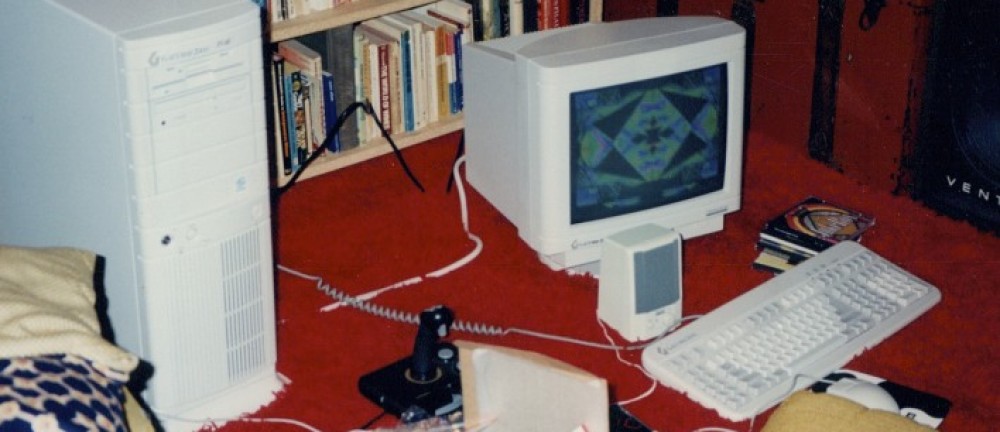Or “How I stopped worrying and learned to love the injection of sand-derived proppants at a rate necessary to exceed the pressure gradients of shale.”
I’m an environmentally-minded liberal. I understand the science of global climate change, and understand that it is occurring at an alarming rate. I know that fossil fuels are finite, and that energy and energy derived issues (mass migration from global warming, drought) are going to be the basis for wars and chaos in the coming century. I acknowledge that I lead an embarrassingly energy inefficient life as compared to the rest of the world.
I want to live in a world in which all of our energy needs are met exclusively by windfarms on the plains and solar farms in the southwest, and in which we drive cars powered by electricity or hydrogen derived from electrolysis.
I am also, unfortunately, a realist and a bit of a pessimist. I’ve come to accept that we’re unlikely to make the jump from the current energy landscape to the ideal I’ve outlined in anything approaching the near term. I also believe that some of the issues I’ve outlined can’t wait. I’ve – grudgingly – accepted that nuclear (fission) will not gain prominence anytime soon. For all these reasons, I’ve come to accept fracking.
Let’s not candy-coat things. Fracking is really bad. It pollutes groundwater. It may cause earthquakes. It has the potential to free radioactive materials. Burning natural gas contributes to climate change, and the methane which can leak during fracking is an even worse contributor to the greenhouse effect than CO2.
All of this is very uncool. In a world of black and white absolutes, fracking would be a nonstarter.
But, big parts of reality are uncool. It’s easy to get hung up debating the ways in which fracking is worse than the environmental ideal – in which our choices are either “perfect” or “evil”. But, all the while, coal and oil power plants are spewing massive amounts of carbon, and people are dying in conflicts over oil.
The harms of fracking are largely localized and in my opinion are outweighed by the benefits. Burning natural gas contributes to the greenhouse effect, but far, far less (on a volume per kilowatt basis) than coal or oil. The other toxic materials emitted (sulfer, mercury) are negligible. Because I believe that slowing climate change is the number one imperative facing humanity over the medium-term, the tradeoffs of fracking-derived natural gas seem acceptable to me.
That said, there are a number of downsides and issues which need to be addressed.
Fracking makes energy derived from natural gas far too cheap. While this has had many positive short-term implications for the American economy, including helping drive the “insourcing” boom, it creates a playing field on which other types of energy cannot compete. It also encourages profligate energy use. Emily Bazelon commented on a recent episode of the Slate Political Gabfest that our incredibly wasteful energy consumption is one of the key social issues we’ll live to regret, and I couldn’t agree more.
Natural gas relies on existing distribution systems, and does very little to encourage the reconstruction that our power grid so desperately needs. It does nothing to disrupt the model of consumer-adjacent power generation – powerplants located near population centers instead of near energy sources. A shift away from this model is critical for realistic renewable utilization, and natural gas gets us no closer.
So, as an environmentally-conscious liberal who has accepted fracking, how can I continue to have a meaningful voice in the energy conversation? There are a few things I’ll push for with my voice, my vote, and my dollars.
We need a carbon tax. We need to push up the cost of energy derived from fracking, to account for the environmental impacts of not only the burning of natural gas, but also the fracking process. We need a carbon tax which makes the worst climate change offenders intolerably expensive, even in the short term. And we need to use the revenue from that carbon tax to fund the reconstruction of our power grid and the continued development of renewables. We need to stop ceding the solar technology industry to the Chinese and the Germans.
Is accepting fracking merely a case of selling out liberal causes? I don’t think so. But I think it’s important that we apply the pressure necessary to make sure that fracking is a transitional energy source. It goes a long ways towards stopping the bleeding – a United States powered entirely by natural gas is in a far better place environmentally, geopolitically and financially than our current state. It’s just not the place we need to create for our grandchildren.
(Ideally we’d accept nuclear as well, but I’m far too pessimistic to reasonably expect that. And, you know, as long as the plants aren’t in my backyard.)
